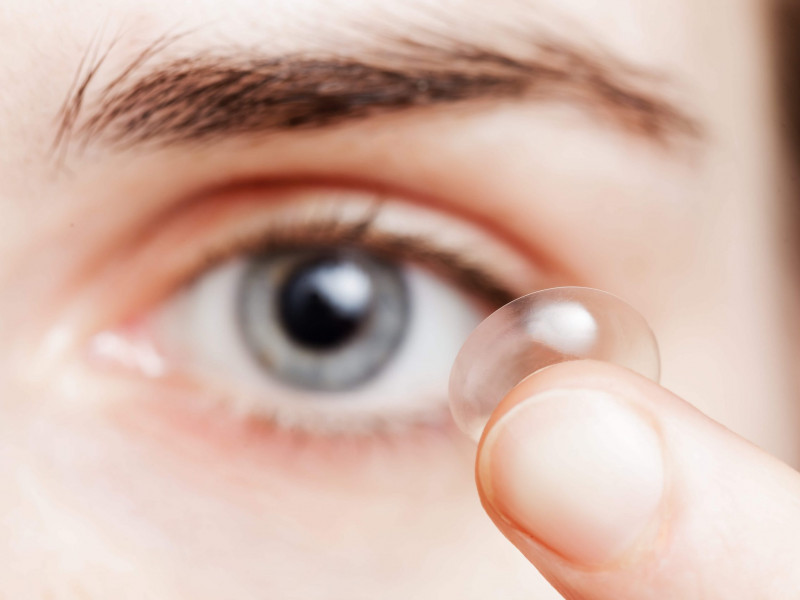Contact lenses are one of the miracles of modern technology
There are many types of contact lenses, so most people can enjoy good vision with well fitted lenses, safely and in comfort.
Contacts often give better vision and eye health than specs, and they do make a change!

Are Contact Lenses Right For Me?
Different types of lenses suit different people. With a thorough and careful checkup, guidance, discussion and explanation are given on which lenses would be best for each individual. The visit costs from £15 to £44 depending on whether you have worn contacts before.
Prices are low (usually less than the opticians who advertise). They include aftercare, and full instruction and training in the use of your contact lenses. The prices of disposable contact lenses are similar to those advertised by online suppliers, and they can be delivered to your address.
Some people have NHS help with paying for contact lenses and replacements. They include children – contacts can be very good for them, even at primary-school age. We also specialise in lenses for unusual requirements, and can often help people who have tried contacts but were not satisfied with them.
What types of contact lenses are available?
These are small lenses, which allow the passage of oxygen through to the surface of the eye. They are made of firmer plastics than soft lenses, which makes them more durable and longer lasting. These lenses are particularly suitable for certain prescriptions such as high degrees of astigmatism. Some people find RGP lenses easier to handle than soft lenses and, although they may take a little longer to get used to, regular wearers find them just as comfortable as soft lenses.
Tinted contact lenses, which can enhance or change the colour of your eyes without affecting what you see, are now widely available.
The latest lenses are made from materials known as silicone hydrogels, which allow around six times more oxygen to reach the eye compared to ordinary soft senses. They are available to correct myopia (short-sightedness) and hyperopia (long-sightedness) and more recently, astigmatism. They may be prescribed for daily wear or for overnight use depending on your needs and suitability.
Soft contact lenses are made from gel-like plastics, often with a high water content, that allows oxygen to pass more freely to the eye. Like the silicone hydrogels, they are much larger and sit on the sclera (the white of the eye), which in turn makes them very comfortable and easy to adapt to.
Most contact lens wearers have the option of choosing from daily disposable, weekly wear, monthly or 3 monthly replacement lenses. Always ensure you wear, and care for, your lenses in accordance with your practitioner’s instructions.
